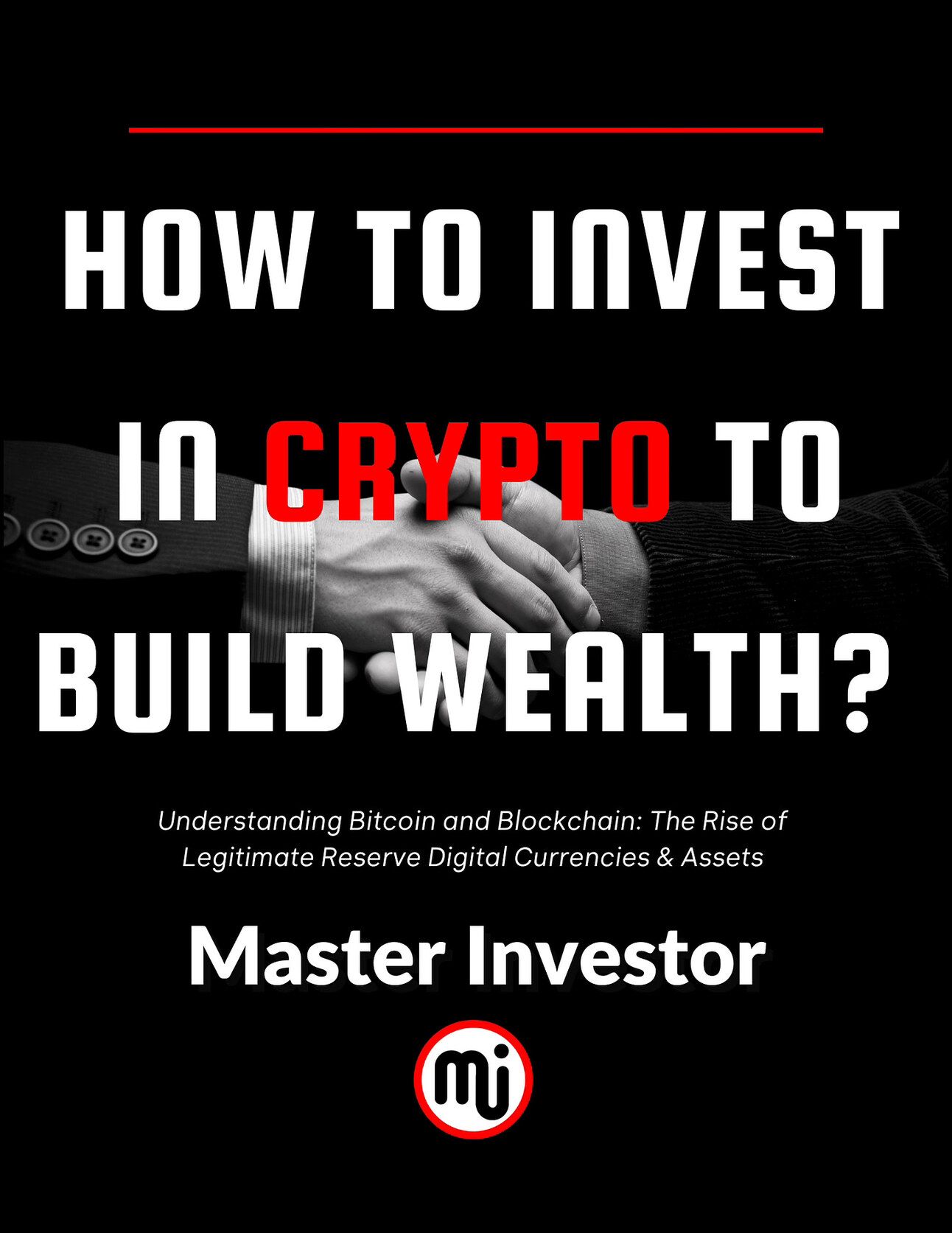Summary:
The secret to profitable investing is to recognize scams before they happen to us.
Our investment choices should be based on reason, financial education and due diligence.
It is more difficult for someone to take advantage of we the more we know.
Bonus: At the end of this article, we will learn how to budget like the ultra wealthy and not like the poor and middle class do.
We could discover early on in our financial education journey that not all of the resources available are charitable. However, in a world where criminals are constantly searching for their next victim, being able to recognize warning signs in financial transactions is not only a skill; it is a necessity. Let talk about a few things about avoiding these pitfalls over the years, often the hard way. Here are ten essential tips below to help us avoid scams and make better financial choices.
1- Context is important.
Context should be the first consideration for new investors. Where is the opportunity being presented, we ask? And how is the chance being offered? It's probably a fraud if someone is approaching us with an investment proposal in an odd or casual way, such as in a restroom or via unwanted emails.
For example, at one conference, I was approached in the middle of a restroom by someone who was trying to sell me a substitute for a product that was being pitched at the event. Do they realize they are pitching us in a bathroom? Although it sounds amusing, the context made it clear to me right away that this was not real. Scammers frequently use anonymity or rely on reliable platforms to conceal their activities.
Don't bite if we come across unwanted offerings in a social media post or podcast comment. A trustworthy investment will never come from an unreliable source or compel us to take rash action. Always question ourselves, "Does this setting make sense?"
2- Offers that seem "too good to be true" should be avoided.
Generally speaking, if something seems too good to be true, it is not always is a scam. We must due our due diligience before making assumptions. Scammers take advantage of our need for quick, simple gains. With less work, they will guarantee enormous profits in a short period of time. To put it plainly, there are no short cuts when it comes to investing and building true wealth.
Genuine chances frequently involve risk and hard work. The pursuit of "get wealthy with n or risk" schemes is one of the most common blunders made by novice investors. A huge red flag is raised whenever someone promises outcomes or says their opportunity is risk-free. There is no such investment as risk free but there can be a calculated risk. Due to today’s technology and artificial intelligence we can get wealthy quick.
A good bargain fulfills a valid market need and is based on real value. Stop and reevaluate if we are emotionally drawn to an offer. Examine the specifics. Investigate further or leave if it's too ideal.
3- Emotional cues are warning signs
Scammers are skilled at playing on people's emotions. They want you to experience feelings that can impair our judgment, such as fear, greed, or hurry. For instance, they may play on our worries about losing financial stability or caution us that we will lose out on a "exclusive deal."
Many individuals have lost all of their life savings as a result of making decisions based only on their feelings. There is a woman who, fearing that she would be "flagged on the blockchain," fell for a Bitcoin fraud. Her accounts were depleted, and the con artists even persuaded her to take out loans in an attempt to "fix" the problem.
Take a step back during a pitch if we are experiencing intense emotions. Our investment selections should be made based on reason and research, not feelings.
4- Financial statements after an audit
Audited financial statements are among the first things to look for when assessing an opportunity. Why? because it's difficult to fake them. An audited statement guarantees that the figures have been examined and verified as correct by a third party.
We are taking a risk without this degree of openness. In order to entice investors, scammers can—and frequently do—inflate or fake financial data.
The ability to comprehend financial statements is ubiquitous. The facts speak for themselves, regardless of whether it's a business, nonprofit, or investment opportunity. Learn to read them. We should back out of a deal if the financials are unclear or have not been audited.
5- Examine the marketing collateral
Excessive presentations and gaudy pamphlets are warning signs in and of themselves. Genuine opportunities can market themselves without the use of gimmicks. In actuality, the finest offers frequently feature clear, uncomplicated information that are fact-based.
"The bigger the brochure, the worse the deal" is a maxim to keep in mind in this context. Why? Because a transaction needs additional packaging to appear desirable when it lacks substance.
6- Recognize the team and leadership
Every successful investment has a solid team behind it. We should never invest if we don't trust the leadership. Find out who is responsible for the opportunity. Do they have experience? Have they previously delivered successfully?
Inflating resumes is a typical tactic used by scammers. They may boast of irrelevant accomplishments or assert that they are "serial entrepreneurs." If they lack firsthand experience related to the current endeavor, that is pointless.
Credibility is important. A strong leader has a proven track record of honesty and inspires confidence. Consider it a warning sign if we are unable to confirm their statements or if they are evasive regarding their past.
Pay attention to the audited data, the numbers, and the history. Consider what they might be trying to conceal if all we see are pretenses, such as opulent pictures and grandiose claims.
7- There are legal scams
Not all scams are illegal. Despite operating inside legal systems, some continue to unfairly abuse investors. For instance, casinos are legitimate but made to gradually steal our money.
Legal frauds in the investment industry frequently involve investments with unfavorable terms or poorly designed funds. Something is not always morally right or profitable just because it is "legal."
Examine the fine print. Recognize who stands to gain the most from the agreement. Follow our instincts and move on if it feels like the odds are stacked against us.
8- Start with what we know
If investing is new to us, stay with what we know. Although it can be tempting to seize novel and exciting chances, complexity can conceal dangers.
Because they didn't fully comprehend what they were investing in, far too many people lose money. This is our "circle of competence," as Warren Buffett puts it. Don't invest in an opportunity if we don't comprehend it.
Begin modestly. Select businesses or sectors that you are familiar with. Our portfolio can grow as our expertise does. However, before investing our money, always make sure we understand the basics completely.
9- Risk management and position sizing
An essential component of profitable investing is risk management. Never put all our eggs in one basket, no matter how good a deal looks.
Our friend is diversification. We lessen the impact of any one failure by distributing our assets among several prospects.
For instance, an investment is probably not a good fit if it takes $100,000 and that's all we have. As our portfolio and confidence increase, start with lesser position sizes and work our way up. Staying in the game long enough to take advantage of future possibilities is the key to risk management.
10- Ongoing financial education is essential
And lastly, never stop learning. The best approach to protect ourselves from frauds is to keep knowledgeable about the constantly changing financial world. Read books, enroll in classes, and pay attention to reliable professionals.
Keep in mind that it is more difficult for someone to take advantage of us the more we know. Prioritizing education can help us not only steer clear of bad bargains but also put ourselves in a position to recognize good ones.
Every investment should be made with as much information as possible. The return on investment shall always be measure with facts no opinions. These are the ten essential guidelines will safeguard our funds and enable us to make prudent investments. Remain alert, educated, and have fun with our investments!
Bonus: How to budget like the ultra wealthy?
Making a budget like the wealthy
The wealthy do not compare our income and expenses using a budget. Instead, we see it as a means of getting ready to make more money. In other words, instead of saying, "we don't have enough money" ( like the poor do), or "how much extra money can we spend," we question, "How can we make more money?" (middle class).
A person with a wealthy mindset would have the following personal financial statement:

The wealthy don't consider our current income when deciding if we can afford the gadgets we want to enjoy. Rather, we inquire as to how much more we will have to create through investing in a cash flowing asset in order to pay for it. We then locate assets and investments to pay for the additional costs and all expenses in our lives. Therefore, we are always living above our means and not below.
When we operate like the ultra wealthy, then our lives are easy with total freedom.

The cost of investing is essentially the first expense in our budget. This generates passive income or known as positive cash-flow, which eventually pays for the "fun" items in our wish list. We make more money by doing less, and acquire more possessions as a result for free because our investments pay for everything. Our expenses are covered by our positive cash flow. Our attitude toward budgeting is the root of it all. Now we need to look at how our personal financial statement looks like and how we will improve it. That is the next task we must execute to build true wealth.
The key of build true wealth is to legally figure ways to raise capital to invest (using OPM other people’s money), paying zero in taxes legally because all debt is tax free, and increase control on long-lasting cash flowing assets. We must be creative to not only use our own money to invest but rather use other people’s money too as it is more beneficial and leverage for us. That is a capitalist which is the highest level of a an investor.
Start investing in high quality financial education, by reading our financial eBooks:



Lucrative resources and tools:
Follow us on Instagram.
Listen to our Podcast.
Subscribe to our Newsletter.
Subscribe to our Youtube.
Follow us on Tiktok.
Purchase a business digital Course.
Like our Facebook Page.
Join our Inner Circle.
I am reading: How To Avoid Bad Investments?
Masterinvestor’s mission is to be the global authentic brand of money, business, and investing that elevates the financial well-being of humanity through high-quality financial education made simple with lucrative opportunities to build passive income, win-win partnerships, and true wealth.
Comment, like, share and follow for more High Quality Financial Education Made Simple.


